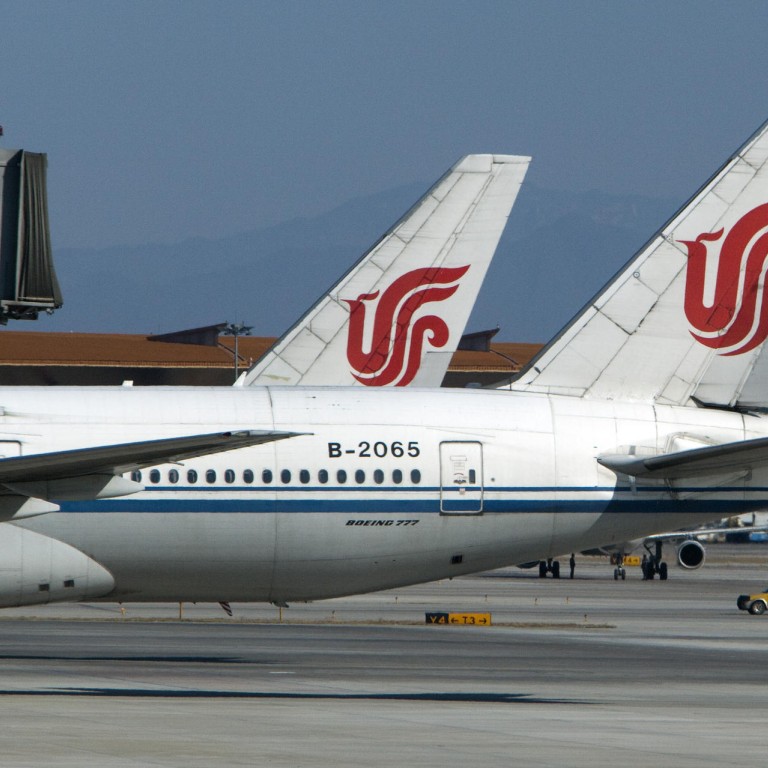
Luxury crackdown brings fear of flying first class in China
Air China president Zhiyong Song didn't seem overly enthusiastic when asked about the idea of senior executives at state-owned enterprises having their salary reduced to 600,000 yuan a year.
"I've noticed it in the newspapers, but I haven't received any instructions about it," he told reporters at a meeting yesterday in Hong Kong to discuss the company's interim results.
The move stems from President Xi Jinping's crackdown on corruption and excessive perks. "Unreasonably high and excessive incomes must be regulated," he said recently.
Song said he had no objections but felt pay should be under review by the board of directors and be linked to company performance. This may not be such a good thing for him at this stage of the cycle.
Air China's net profit for the first six months of the year was down 55 per cent, although this was mostly due to foreign exchange losses. But it's not just executive pay that may feel the impact of Xi's crackdown. Air China is based in Beijing and is probably the most exposed among all mainland's airlines to the crackdown since lavish travel expenses are now frowned on.
Hence its premium classes have taken a hit. But Air China says it is not planning to adopt China Southern's approach and make its first class more politically acceptable by calling it business class.
We see that Nathan Tinkler has had the rug pulled out from underneath him by Peabody Energy. The flamboyant Australian coal miner had been seeking to raise funds for what was to be a run at making a comeback by acquiring the Wilkie Creek coal mine in Australia from the US coal giant Peabody Energy. Indeed Tinkler's search for funds to complete the purchase brought him to Hong Kong earlier this week, though it's not clear if he secured any commitments here.
One mining executive spoke to felt that Tinkler "was due one more roll of the dice", in much the same way that Andrew Forrest had another chance with Fortescue Metals after his disaster with Anaconda Nickel in 2001. However, Tinkler may not get that chance since Peabody yesterday terminated its dealings with Tinkler as he was taking too long and had missed a number of payment deadlines.
Companies from China, India and South Korea dominate Forbes' Fabulous 50 List this year. It's a list of what Forbes considers are the 50 best publicly listed companies in Asia with at least US$3 billion in annual revenue or market capitalisation.
Companies are also analysed for a "long series of performance measures such as revenue, profits, return on capital, share price movements and outlook".
Businesses with significant debt are excluded as are those where the government owns at least half of the shares. Hong Kong has three firms on the list which perhaps surprisingly include the casino groups Galaxy Entertainment, and Melco Crown Entertainment.
Chow Tai Fook this year entered the list for the first time. China has the most number of companies on the list at 16, though down from 20 last year.
They include Baidu, Tencent, Lenovo and China Gas Holdings. India has 12 companies on the list, the same as last year. HDFC Bank, India's second largest private lender, appears on the list for the eighth time, the longest of any company. Other Indian businesses include HCL Technologies for the fifth time, and Sun Pharmaceutical Industries. There were six firms from South Korea, two from Japan, Australia, Thailand Malaysia, and Singapore, and one from Indonesia, Philippines and Taiwan.
Have you got any stories that Lai See should know about? E-mail them to [email protected]

